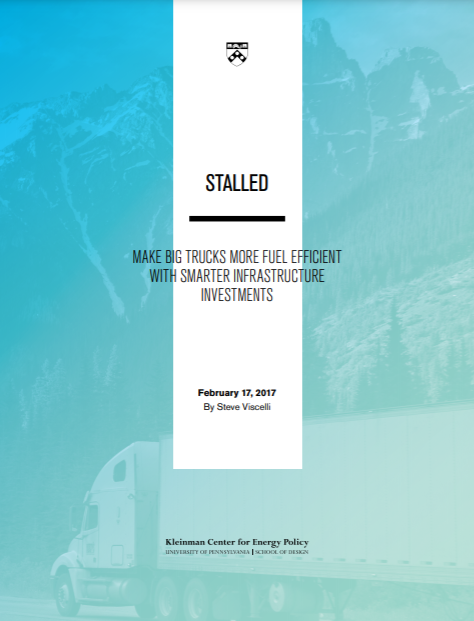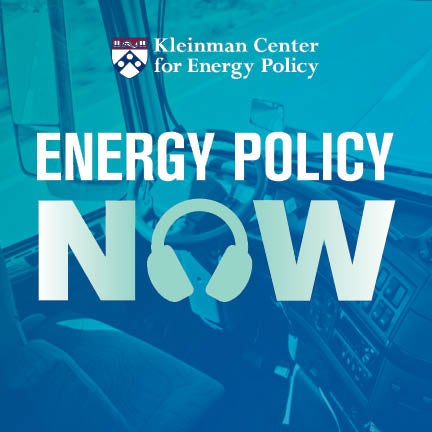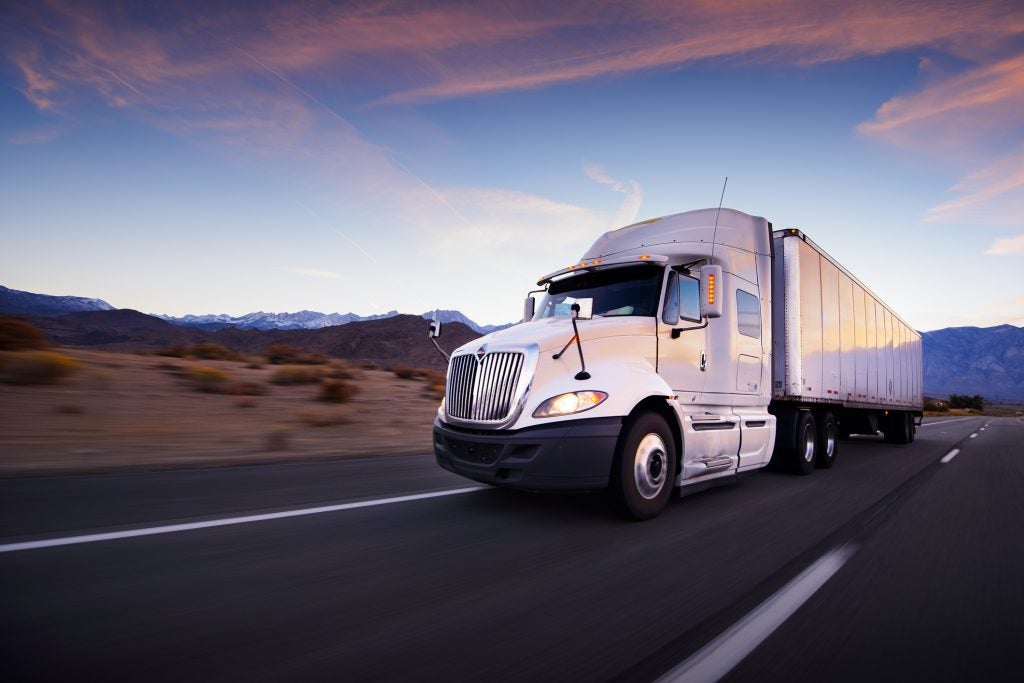Urban Truck Ports
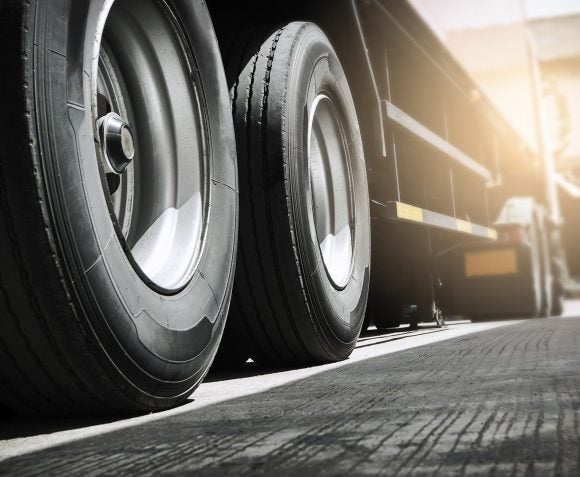
Reducing Greenhouse Gas Emissions in Trucking
How can we rethink trucking?
Long-haul trucking has been broken for decades. The average truck, at even the most sophisticated companies, sits for two-thirds of the day. The average driver sits for dozens of hours per week waiting to load and unload or be assigned work. This is the cheapest way to move freight because workers and the public bear much of the cost.
Part of that public cost is the continued dependence of the industry on diesel fuel, with the air pollution and greenhouse gas emissions that come with it. Because long-haul trucks are used so inefficiently, trucking companies don’t get a return on investment that makes it worthwhile to buy the best technology.
Urban truck ports will fundamentally change the economics of investing in clean technologies, including electrification. They will also solve the problems for drivers and reduce the impact of trucks on congestion and our ailing infrastructure.
When you think of reducing your climate impact, you may think about ditching the car or switching to an electric vehicle. While cars and trucks contribute the most carbon emissions, big trucks pack by far the biggest emissions punch per vehicle.
Per vehicle, big trucks produce by far more CO2 than passenger vehicles, burning 28 billion gallons of diesel per year. That is 14.5% of all the petroleum consumed in the U.S.
Our current highway trucks are not optimized for highway or city driving. But what if trucks didn’t have to drive into cities at all?
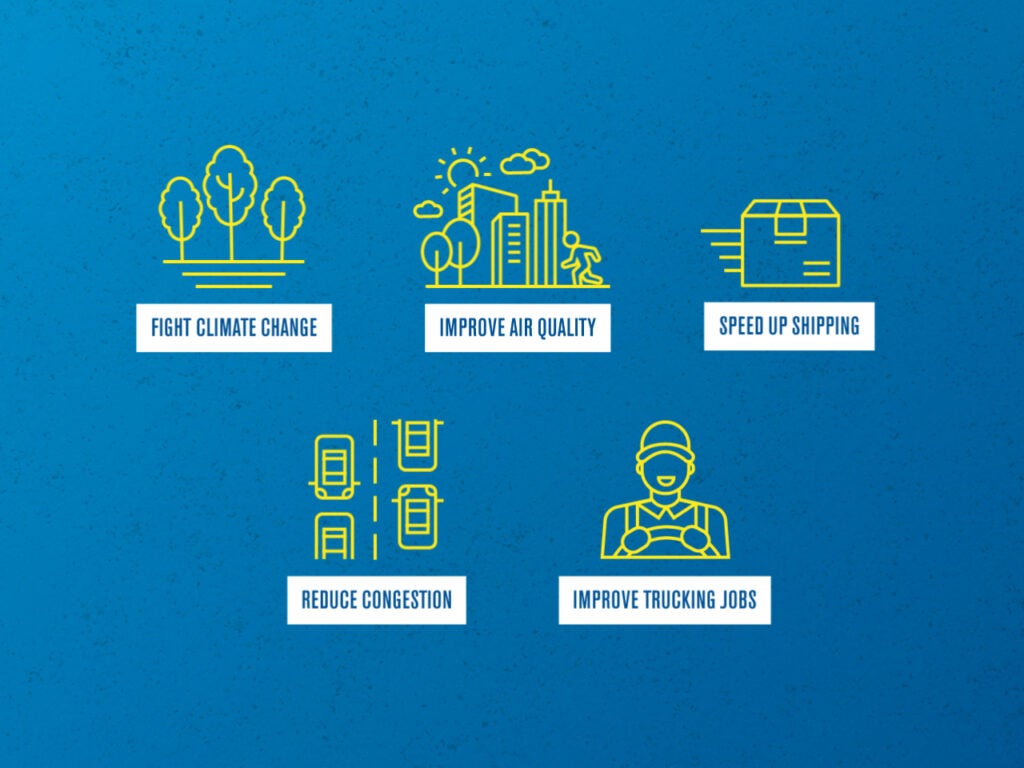
At urban truck ports, super efficient, aerodynamic highway trucks will switch trailers with clean, electric city trucks that are better suited to driving in urban environments. These ports would support a national charging network, clean up urban air, fight climate change, speed up shipping, reduce congestion, and improve the working conditions of truckers.
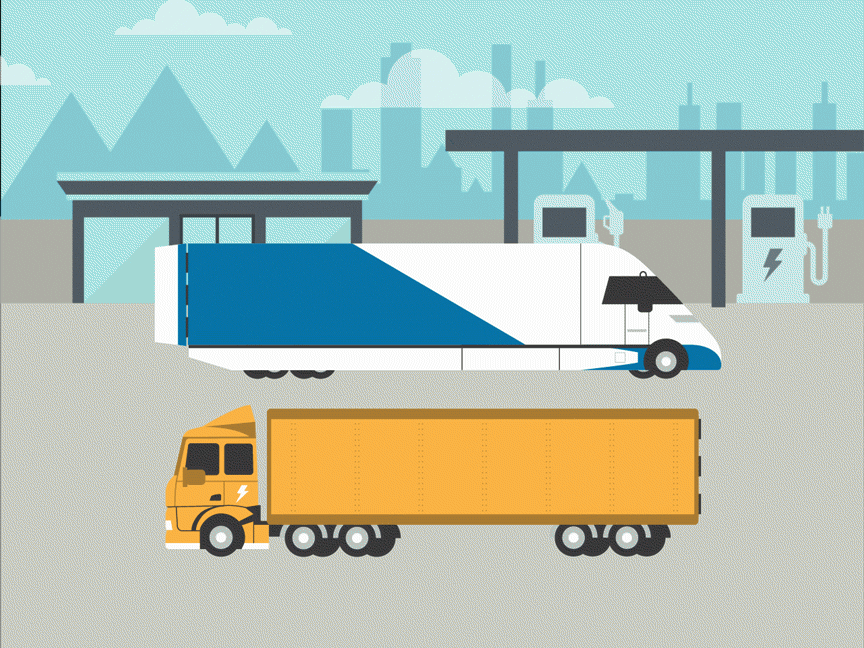
Learn More
Stalled: Make Big Trucks More Fuel Efficient
To improve fuel efficiency and congestion, the United States should build a network of urban truck ports—where drivers swap freight. Rural drivers would use tractors designed for the long haul, and urban drivers would use tractors designed for city driving.
The Promise and Peril of Self-Driving Trucks
Self-driving technology promises to revitalize the trucking industry. But increased energy demand and air pollution are possible downsides.
The Infrastructure Bill Could Fix Trucking for the Long Haul
As the country explores major infrastructure investments, urban truck ports have the potential to increase the fuel efficiency of trucks, reduce air pollution, and improve the lives of truckers who deliver our critical goods.
